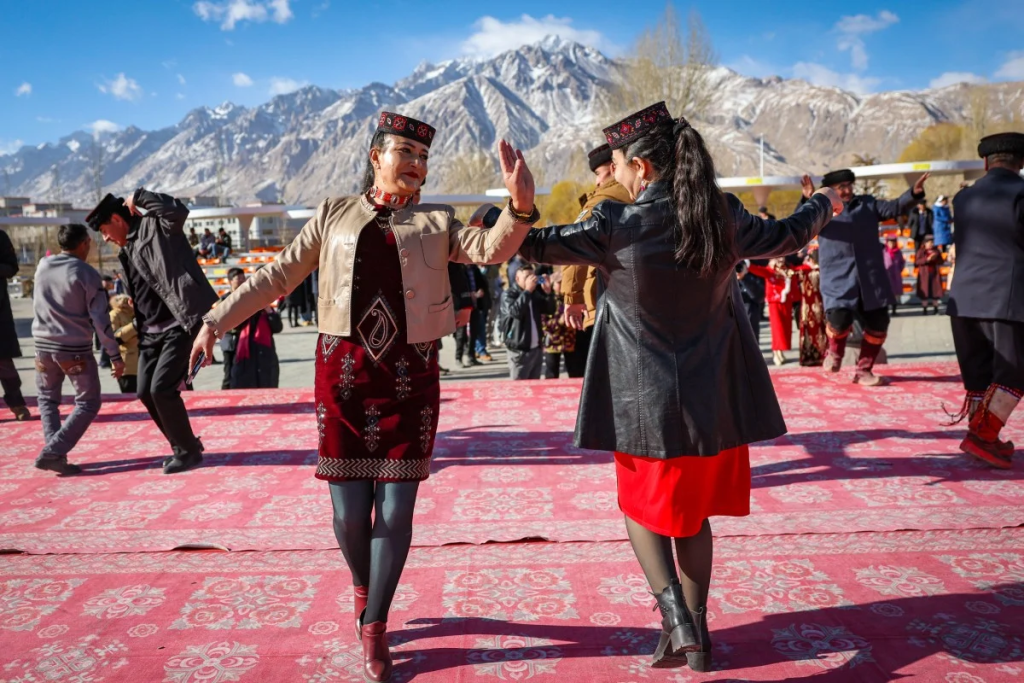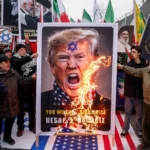
Ambassadors from more than 20 countries have shown support for China’s policies in the Xinjiang Uyghur Autonomous Region and pledged to develop closer economic ties with the far western region as it seeks to expand its international influence amid allegations of rights abuses. humans.
While attending a reception in Beijing on Wednesday, ambassadors from South Africa, Pakistan, Kazakhstan, Iran, Syria and Turkey told Xinjiang officials they hoped to strengthen economic ties with the region.
More than 50 diplomats from 49 countries, including 21 ambassadors, attended the reception. It was the largest of several similar events organized by Xinjiang authorities in recent years.
The highest-ranking Chinese official present was Xinjiang Communist Party chief Ma Xingrui, who is also a member of the Politburo, the party’s elite decision-making body.
The event coincided with Eid ul-Fitr, the Muslim festival marking the end of the fasting month of Ramadan.
Xinjiang is home to 25.85 million people, 14.93 million of whom are members of ethnic minority groups, including Uyghur and Kazakh Muslims.
Beijing has been accused of human rights violations and forced labor in Xinjiang – charges it has denied. The Xinjiang government has become more proactive in recent years in promoting the region’s economic development, especially its status as a core area of China’s Belt and Road Initiative, in hopes of improving its international image.
Turkish Ambassador to China Ismail Hakki Musa said that Xinjiang, as a central part of the belt and road strategy, could cooperate with the Middle Corridor, also called the Trans-Caspian International Transport Route (TITR), a Eurasian trade route supported by Ankara.
China’s Uyghurs, who speak a Turkic language, share cultural and linguistic ties with Turkic Muslims. Relations between Beijing and Ankara were once tense over Xinjiang, but have improved in recent years as a result of closer economic ties.
Kazakhstan’s ambassador to China, Shakhrat Nuryshev, said Xinjiang holds a “special place” in his country’s ties with Beijing. About 1.6 million ethnic Kazakhs live in Xinjiang.
Central Asian countries are a priority for the Xinjiang authorities in developing foreign relations.
These countries, most of which became independent in the early 1990s with the collapse of the Soviet Union, were once considered the source of separatist sentiments in Xinjiang due to their shared cultural similarities with ethnic minority groups in the Chinese region.
However, China’s ties with Central Asia have warmed over the past decade as Xinjiang’s security situation has improved and countries in the region have played an increasing role in the belt and road – Beijing’s ambitious plan to build global trade and infrastructure links.
In a speech at the reception, the Syrian ambassador to China, Muhammad Hassanein Khalil Khaddam, denounced the “lies of some Western countries”, referring to allegations of human rights violations in Xinjiang.
Syria has increased its cooperation with China in the face of Western sanctions, as Beijing strengthens ties with Moscow, an ally of Syrian President Bashar al-Assad. Assad traveled to China in September – his first visit since the start of the Syrian civil war in 2011.
Mohsen Bakhtiyar, Iran’s ambassador to China, said his country “connects China and the West through Xinjiang”, adding that there are great opportunities for cooperation between Iran and Xinjiang in areas such as energy and minerals.
Pakistan’s ambassador to China Khalil-ur-Rahman Hashmi said Islamabad hopes to deepen cooperation with Xinjiang in trade, investment and other areas. In recent years, China and Pakistan have also strengthened their cooperation in the fight against terrorism.
The South African ambassador also gave a speech and envoys from Cuba, Saudi Arabia, Azerbaijan, Dominica, Georgia, Qatar and Serbia participated in the event.
Xinjiang has sent multiple official delegations abroad in the past two years, and the region has frequently hosted foreign envoys, religious representatives and media figures.
In 2021, Xinjiang hosted more than 40 envoys from more than 30 African countries in the regional capital of Urumqi.
In late January, Xinjiang invited foreign diplomats for the first time to participate in two regional sessions in Urumqi – its most important political event of the year. The diplomats who participated were mainly from countries belonging to the Shanghai Cooperation Organization, a regional security and economic group led by China.
Wednesday’s reception was also attended by several senior Chinese officials in charge of Xinjiang, religious and foreign affairs, as well as local Xinjiang officials in charge of ideology and foreign affairs.
Erkin Tuniyaz, governor of Xinjiang and one of the officials sanctioned by the US for alleged human rights abuses, said the region protected religious freedom, particularly the “healthy and orderly development” of Islam.
Chen Xiaodong, China’s vice foreign minister, said Beijing would “actively promote” opening up Xinjiang to the outside world. He added that he hopes the envoys will promote Xinjiang to the world and resist “lies about forced labor.”
Report published by South China Morning Post
Source: https://www.ocafezinho.com/2024/04/12/diplomatas-estrangeiros-elogiam-as-politicas-da-china-em-xinjiang-e-prometem-investir/

